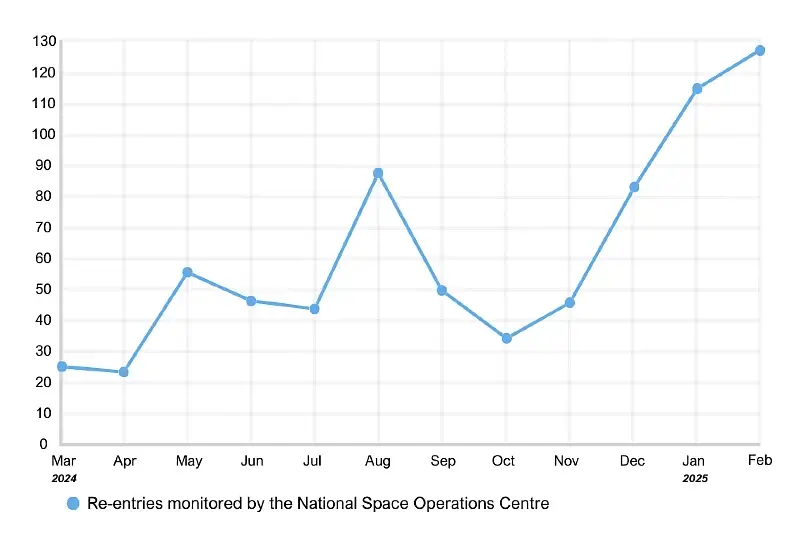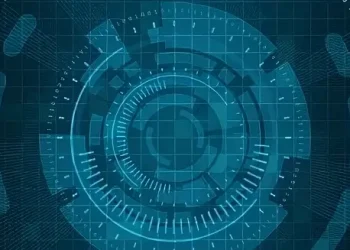In February 2025, the UK National Space Operations Centre (NSpOC) reported a record number of uncontrolled re-entry alerts, monitoring 129 objects, including 119 satellites.
This surge underscores the growing complexity of space operations and highlights the UK’s commitment to enhancing space security through a £65 million investment in a new surveillance system.
Surge in Uncontrolled Re-Entry Alerts
The UK National Space Operations Centre (NSpOC) experienced an unprecedented level of activity in February 2025, with uncontrolled re-entry alerts reaching their highest recorded levels.
A total of 129 objects were monitored for potential re-entry into Earth’s atmosphere, including 119 satellites.
This increase reflects the growing challenges associated with managing space traffic and ensuring the safety of both military and civilian satellite operations.
Space Weather and Its Impacts
During this period, space weather events ranged from minor to moderate intensity. Notably, on February 23rd, a strong radio blackout occurred, affecting satellite communications and highlighting the vulnerability of space-based services to solar activities.
These events underscore the importance of robust surveillance systems to mitigate risks associated with space weather.
UK’s Strategic Investment in Space Surveillance
- The UK has committed £65 million to develop a new space surveillance system.
- This investment aims to protect military satellites and enhance national security.
- The Borealis system will improve tracking capabilities for orbital debris management.
- Collaboration between government and private sectors is being fostered for technological advancement.
- The initiative aligns with broader European trends towards increased investment in space technology.
Re-entries March 2024 – February 2025
Orbital Debris Management: A Growing Concern
The increasing number of satellites launched into orbit has heightened concerns about orbital debris management. The UK Space-Comm Expo emphasized the urgent need for technologies that can effectively remove debris from orbit.
As more countries invest in space exploration, managing this “space waste” becomes critical to maintaining a safe operational environment for all nations involved.
International Cooperation and Geopolitical Implications
The UK’s efforts are part of a global trend where nations are investing heavily in space security and surveillance systems.
This could lead to either increased cooperation or competition among countries depending on how these technologies are developed and shared internationally.
The UK’s membership in initiatives like the International Asteroid Warning Network (IAWN) demonstrates its commitment to planetary defense through international collaboration.
Additional Reading
Final Thoughts
The UK’s proactive measures in enhancing its space surveillance capabilities reflect an understanding of the critical role that secure satellite operations play in modern life.
By investing significantly in technology like the Borealis system, the UK is positioning itself as a leader in addressing both current challenges and future opportunities within the rapidly evolving domain of outer space exploration.
Discover more of Todays Top Breaking News Stories!
Sources: UK Government, Space.com Article on UK’s Surveillance Investment, and THX News™.
Ivan Alexander Golden, Founder of THX News™, an independent news organization dedicated to providing insightful analysis on current events, prepared this article.









